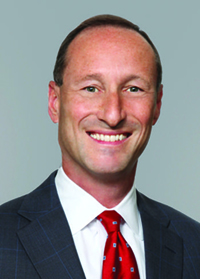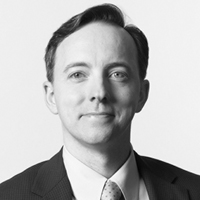The law school of the next century
Emory is a national leader in offering "simulation classes," in which full-time faculty supervise students involved in everything from doing environmental litigation to drafting contracts and negotiating deals.

The headlines aren't always rosy: “Just how bad off are law school graduates?” Time magazine asked, citing dwindling job opportunities. “Law schools are in deep trouble,” read a story in the Washington Post, which reported that enrollment has been down in the past decade.
What’s to make of the trends? Further, what might law school look like 100 years from now? While it’s impossible to know with any certainty, many Emory Law voices are mostly bullish about the future of American - and Emory - legal education.
But big changes - propelled in part by technology, a burgeoning global economy, and more experiential learning - are almost certain to remake the future law school experience, observers say. While the nation’s top programs are expected to thrive, some law schools may join forces, while still others could disappear due to financial woes.
The professional consensus appears to augur a decidedly different educational experience a century hence, promising a new set of headlines.

C. Lash Harrison 62B 65L is a managing partner with the employment law firm of FordHarrison in Atlanta.
It’s already happening to some degree. Discovery work usually performed by young lawyers is being replaced by computers, whose complex algorithms effectively read documents and emails and decide what is relevant to a case. Law schools, as a result, are rethinking curricula.

Mark Wasserman 86L serves as the advisory board chair at Emory Law. Read more about him on page 29.
“I do think that the more things that are blind, the more diversity will advance,” he says. “It will be harder for unconscious biases to have an effect if technology plays a larger role.”
Technology could spur new cottage industries, some suggest. Even the best innovations need input from people who understand the law, potentially creating a whole new sector of jobs for lawyers, says Emory Law Dean Robert A. Schapiro, Asa Griggs Candler Professor of Law. That’s just one area of potential new coursework, as well as the possible addition of classes that could address as-yet-unknown vagaries of privacy and cybersecurity. Other classes, in a nod to technological realities, could focus less on legal doctrine and more on project management and leadership.
“There will also be an acknowledgement of the variety of different roles that lawyers play and the skills that can be useful for them to have, whether it’s statistics, psychology, chemistry, or languages,” Schapiro says. “I suspect we will see new classes arising to help prepare students for that world.”

Louise Wells 74C 78L is the managing partner of Morris, Manning & Martin and the founding partner of the firm¿s residential real estate practice.
“We want the students to come in and be ready to practice the law, because the clients are no longer paying — or they resist paying — for the learning curve of a first-year lawyer,” she says.

John Maggio 96L is partner in the New York office of Condon & Forsyth and is president of the Emory Law Alumni Board.
The influential list rates programs based on the size of their endowments and doesn’t take into consideration student diversity initiatives, like those at Emory, Maggio notes. (In the latest rankings, Emory Law held at 22nd place.)
“What’s really going to change the law schools and the admission process is a fundamental change in US News & World Report reporting. I’m a fan when they rank us well,” Maggio says with a laugh, “but it’s unfortunate that it’s not as transparent as it needs to be. I think students blindly accept it without understanding why.”
How law degrees are conferred could also change. Currently, the American Bar Association (ABA) places heavy restrictions on a program’s ability to issue online JDs. But new programs, some modeled after Emory’s own new online juris master (JM) program, could provide unique opportunities.
“The JM program offers a one-year degree for people who are not planning to practice law as a profession but are looking to a legal education to enhance what they do,” says Schapiro, who doesn’t discount the possibility that law degrees could be earned online a century from now.
As for law school admissions, that, too, could be rethought, Schapiro says. “We may have a broader number of instruments by which to assess students, and I think we also may see a greater appreciation of other kinds of skills that are essential to legal practice, such as cultural competence, being comfortable with diversity, and overcoming adversity.”
A global economy, meanwhile, could signal new opportunities for American-trained lawyers abroad.
“We have certainly seen an increase in interest in people around the world learning about the US legal system, either because they want to practice law in the United States, perhaps representing businesses from their home countries, or because their plan is to go home, but once they get home they want to represent US industries doing business in their countries or their own industries doing business in the United States,” Schapiro says.
“The global economy has really taken off across all sectors,” he adds, “which has created a great need for people who are comfortable with the US legal system, which really is the dominant legal system in the world.”
Globalism also is expected to foment wider diversity, both among students and faculty.
Law programs could increasingly create coursework that better informs students of political systems around the globe, while also highlighting cultural sensitivities. Emory is a national leader in offering “simulation classes,” in which faculty supervise students involved in everything from doing environmental litigation to drafting contracts and negotiating deals. (Emory has one of the nation’s first and finest transactional law programs, made possible by a cadre of full-time and adjunct faculty in the Atlanta area.)
Brick-and-mortar law schools are expected to prosper as they build connections with the legal professions - connections in which outside practitioners help shed light on different aspects of their work. “I do think it may be harder to succeed as a law school outside of a major metropolitan area,” Schapiro says.
Predicting the future of legal education is no sure thing, though, asserts Harrison.
“When I first started practicing law, there were no such things as fax machines and computers,” he says. “It’s clearly not going to be the same. The pace of change has been dramatic in just the past ten years, and it’s going to accelerate.”
And as Wasserman adds, “Emory is well-positioned to take advantage of changes. We all just need to be awake and aware as they keep coming.”



